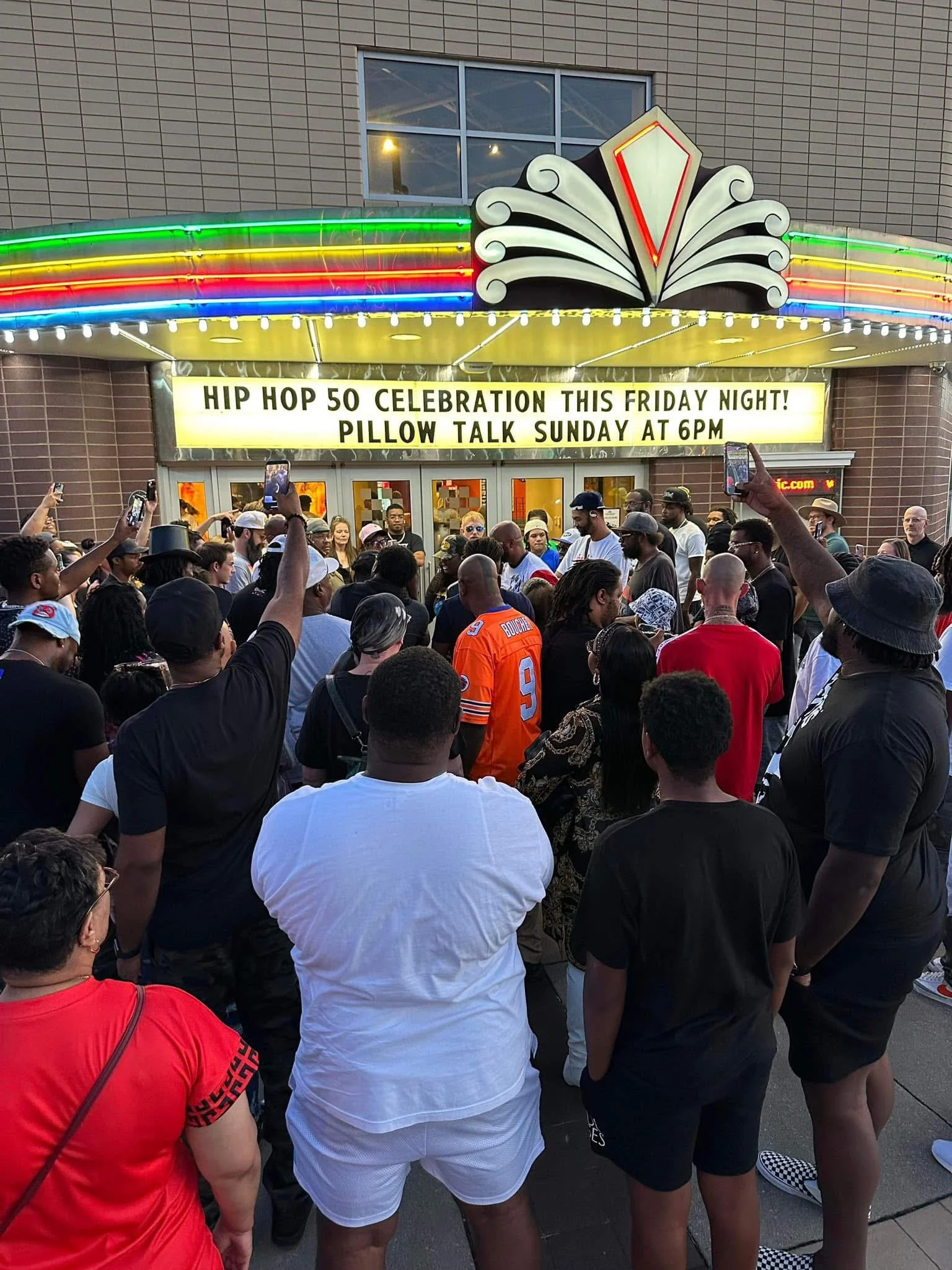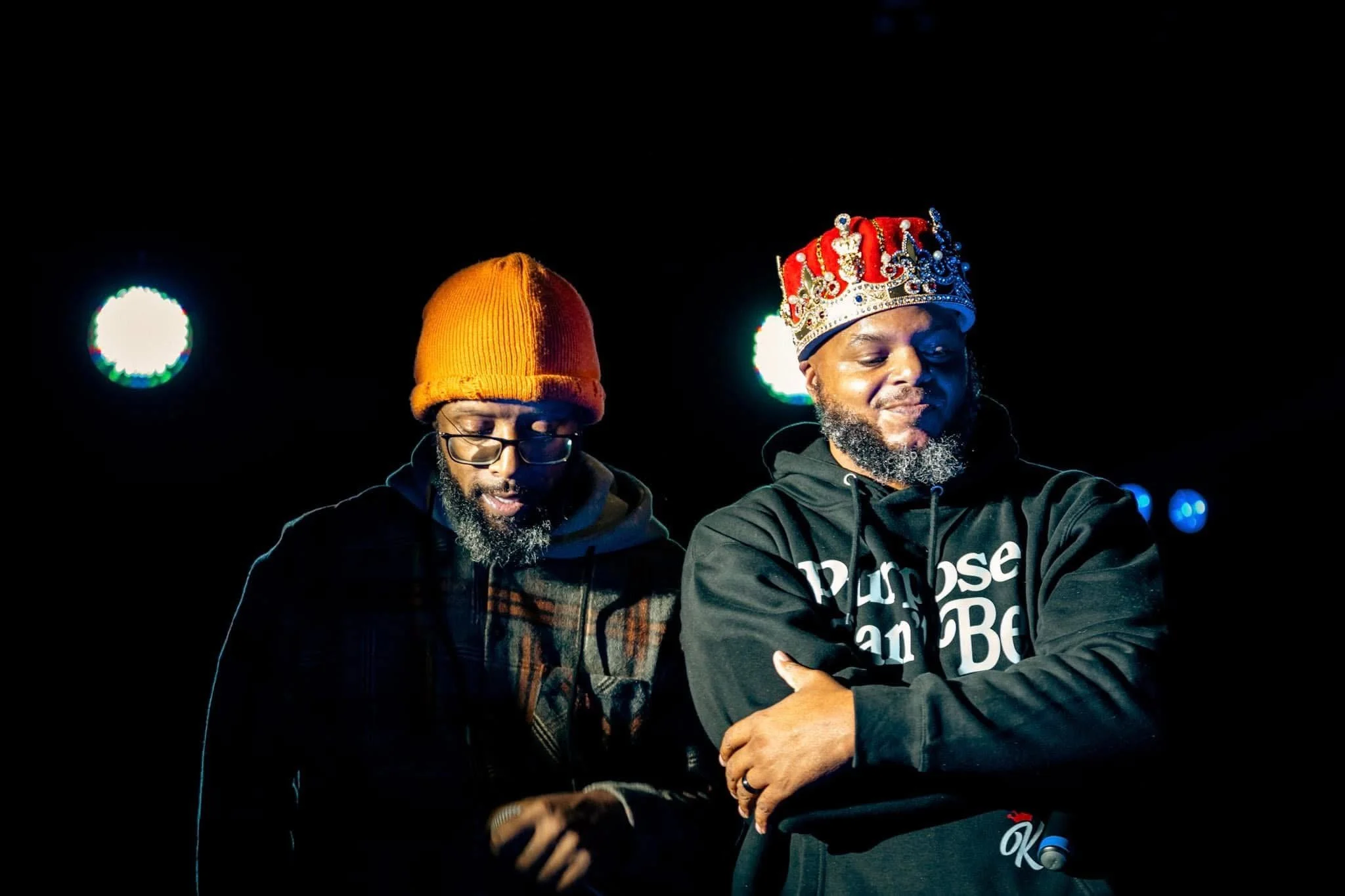You Like to Dance to Our Beats, But Hate the Truth In Our Rhymes.
Lexington Hip Hop Day, 2023.
Written by Emmy Award-Winning Hip Hop Artist, Devine Carama.
Hip Hop is widely recognized as one of the most influential art forms of the 20th century. It was created in the inner city streets of New York City in 1973 to be a voice for the voiceless. A therapeutic, celebratory, informative, and braggadocious form of expression that told the stories of black and brown people in America. But to be honest, hip hop is more than just a genre or art form; it's a culture. A culture identified by its 4 founding elements: MCing, DJing, Graffiti, and Breakdancing. With “knowledge” being the unofficial fifth element. Hip Hop legend and educator, KRS-ONE, once said, “Rap is what we do, but hip hop is what we live!” Hip hop was well represented and thrived culturally through the golden era of the 80s and early 90s. Hip hop then exploded into the mainstream in the early to mid-90s with the emergence of “gangsta” rap and a more commercialized sound. Some hip hop culture enthusiasts cite the exploitation and commercialization of hip hop and its increased glorification of sex and violence as a strategic ploy to undo the more positive and revolutionary themes of the 80s and early 90s. By the time the new millennium hit in 2000, hip hop was everywhere. It could be heard from the East End projects in Lexington to a wedding reception in the Hamptons. It grew into a global phenomenon. Though hip hop was growing monetarily, culturally, it was losing some of the elements that made it the most unique and revolutionary medium of expression ever created. The skillful art of lyricism and breakbeats was being replaced by the microwave and computer-generated sounds that made a sonic impact in the moment, but lacked the weight to create movements that stand the test of time.
Deacon the Villain & Devine Carama, 2025.
Hip Hop in Lexington was prevalent in the 70s and 80s and began to hit its stride in the 90s. Local hip hop historian Joey Truax was known to many in the city as the town’s first hip hop “super producer”. Mino Slick appeared with Lexington R&B duo Black Coffey on the nationally syndicated B.E.T., and southside representative, Rob Jackson, inked the first major label record deal by a rapper from the city, with his new hit single, “Boom, Boom” featured on the popular music show, 106 & Park. That success continued through the early and mid-2000s as the central Kentucky-based hip hop group, CunningLynguist, became a huge hit overseas and on the West Coast, while Lexington-bred rapper/producer, Nemo Achida, ascended to being Jack Harlow's creative manager. In 2022, Lexington native JK-47 and yours truly became Lexington’s first hip-hop artists to ever win an Emmy award. So as you can see, the hip-hop culture here is rich. While the mainstream hip hop community continues its “culture vs commerce” tug of war, Lexington hip hop is embarking on a different battle.
Hip hop is featured, center stage in today’s society, whether it's the Super Bowl halftime show, political campaign rallies, or college football game days. Hip hop has successfully evolved from an urban ritual to a universal art form that represents and brings us all together, regardless of race, religion, or political party. So why has hip hop struggled to be accepted or elevated into the mainstream culture of Lexington? I feel it’s patronized just enough so that certain establishments or organizations feel “hip”, but distanced enough so it isn’t too closely associated with its edgy constant or its relationship to black culture. In my song, “Original Man,” which appeared on my 2020 album, “Black In America”, I wrote, “White supremacy loves my style but fears my mind, they love dancing to my beats but hate the truth in my rhymes.” That sentiment can be equated to how hip hop is often viewed in Lexington, especially as society has slowly moved away from its commitments to diversity, equity, and inclusion. Railbird Festival has grown into one of the largest musical festivals in the region, but has a hip hop artist ever graced the stage? Local hip hop artist Tony Wavy recently entered into a partnership with 2 major art entities in town, and the completion of his projects were inexplicably delayed and ultimately postponed. Why? We are 7 months into celebrating the 250th birthday of this great city, in which several events have been thrown in commemoration of the landmark anniversary, but where is the meaningful representation of hip hop culture? Even Lexington's longest-running local hip hop station, 107.9 The Beat, has refrained from celebrating LOCAL hip hop artists for decades. It is to be noted that the newest regime is making efforts to change that. When we talk about Kentucky Writers, we often celebrate historians, authors, and poets, but why not rappers? I’ve dedicated my entire career to opening doors and attempting to bridge the gap of hip hop culture into the mainstream fabric of Lexington, KY. From performing with the Lexington Philharmonic to teaching a hip hop and community class at the University of Kentucky, yet somewhere along the way, that progress has stalled.
The solution is simple. First, Lexington hip hop artists have to take a more professional and business-minded approach to their careers. You can be the best rapper in the world, but if you are incapable of selling yourself and your art to the community in a way that resonates, you will be nothing more than an urban myth with classic albums that never left your laptop. Also, Lexington hip hop artists must take a stand! Learn to say “NO!” Stop doing performances for free! Don’t accept crumbs from a full plate that our culture helped cook. Whether directly or indirectly, hip hop culture has impacted the city in many positive ways. Murals are all over the city of Lexington and are a part of the city’s strategic beautification and cultural efforts. “Mural” is just a fancy word for graffiti, which is one of the core elements of hip hop culture! Some of the city’s most effective activists, such as myself, Farmer Brown, Terry Dumphord, Geo Gibson, Corey Dunn, and Logan Avritt, all derive directly from hip hop culture as artists and still use the culture as a way to reach the most vulnerable young people in our city. We are not just a fad or something you can dabble in when it's convenient for you. We represent a longstanding, lucrative, and impactful culture that should be given the respect in Lexington that it rightfully deserves. Which means engaging, learning from, and building with the community from which it comes! Hip hop is, and has always been, connected to the roots of underserved communities. Don’t eat from its fruits if you aren’t committed enough to water its roots. But as I write this letter, I’ve realized: hip hop was never supposed to go mainstream. It was always supposed to be on the fringes of society so that it could hold society accountable and check power structures without fear of reprimand or censorship. So while our culture does deserve more respect, maybe we are right where we need to be in the city of Lexington, to truly FIGHT THE POWER.


